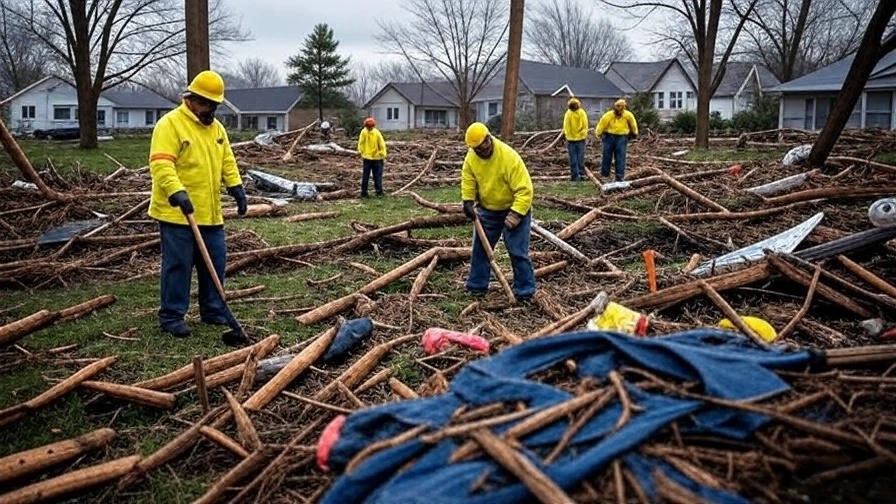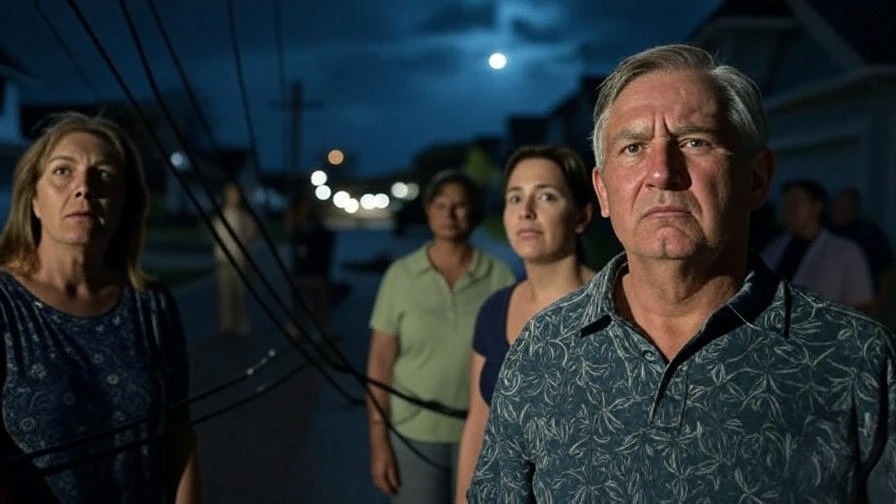Michigan residents know the drill all too well – storm clouds gather, winds pick up, and within hours, millions are plunged into darkness for days. This recurring nightmare has finally caught the attention of state regulators, who’ve delivered a harsh reality check to the state’s two utility giants: DTE Energy and Consumers Energy.
The Damning Audit That Changed Everything
In September 2024, an independent audit by The Liberty Consulting Group delivered a scathing assessment that neither utility wants to hear – both companies perform “worse than average” compared to their peers nationwide. The Michigan Public Service Commission (MPSC) commissioned this audit in 2022 after mounting public frustration over widespread, prolonged outages affecting over four million customers.
The culprit? Something as simple as tree branches and fallen limbs on power lines – a problem that speaks to decades of inadequate maintenance and infrastructure neglect. The audit revealed maintenance backlogs that have left Michigan’s power grid vulnerable to even moderate weather events.

State Regulators Draw the Line
On June 12, 2025, the MPSC took decisive action, adopting all 75 recommendations from the audit and issuing comprehensive orders to both utilities. This isn’t just a gentle nudge – it’s a complete overhaul mandate that addresses systemic failures head-on.
Key Requirements Include:
Enhanced Tree Management: Consumers Energy must consider accelerating tree trimming cycles from seven years to four years. This directly tackles the primary cause of outages – a move that should have been implemented years ago.
Equipment Replacement Revolution: Instead of replacing equipment based solely on age, utilities must now prioritize replacements based on actual condition assessments and thorough inspections. This proactive approach could prevent failures before they happen.
Public Safety Priority: Following a tragic 2022 incident where a 14-year-old girl was killed by a downed wire, utilities must implement better protection protocols and enhanced reporting on downed wire statistics. As Public Service Commissioner Katherine Peretick stated, “The danger of live wires that fall down off of utility poles cannot be overstated.”
Accountability Measures: Perhaps most importantly, the MPSC has linked future rate increase approvals to demonstrated performance improvements – finally connecting customer costs to service quality.

The Utilities Fight Back – Sort Of
Both DTE and Consumers Energy have publicly acknowledged the recommendations, but their response reveals a mixed bag of commitment and resistance.
The Positive Spin:
- DTE reported a $1.5 billion investment in 2024, contributing to a nearly 70% improvement in customer outage time
- Both companies hired meteorologists to better predict and prepare for storms
- Consumers Energy’s “Reliability Roadmap” has reportedly reduced outage duration
- DTE aims to reduce outages by 30% and cut outage time in half by 2029
The Pushback Reality: However, the utilities haven’t embraced all 75 recommendations. Consumers Energy disputes the accelerated tree trimming timeline, while DTE questions more frequent overhead line inspections. This selective acceptance raises questions about their true commitment to comprehensive change.

The Rate Hike Controversy That’s Fueling Public Anger
Here’s where the story gets particularly frustrating for Michigan residents. While service quality remains subpar, both utilities are aggressively pursuing massive rate increases:
- Consumers Energy: Seeking $436 million increase (9.2% overall rate hike, 13.3% for households)
- DTE Energy: Requesting $574 million increase (11.1% residential bill increase)
Michigan Attorney General Dana Nessel has intervened in both cases, pointedly asking, “At some point, we have to ask how long utility companies like DTE and Consumers Energy will be allowed to treat customer bills and our energy rates like a blank check.”
This timing couldn’t be worse for public relations – requesting massive rate hikes while simultaneously being labeled as “worse than average” performers.

The Reality Check: Problems Persist
Despite claims of improvement, recent events suggest the crisis is far from over. March 2025 storms left over 319,000 customers without power for several days, proving that fundamental problems remain unresolved even after the audit’s release.
This pattern of recurring failures, combined with rate increase requests, has created a perfect storm of public frustration and regulatory pressure.
What This Means for Michigan’s Energy Future
The MPSC’s decision to tie rate approvals to performance improvements represents a watershed moment. For the first time, utilities face real consequences for poor service – their bottom line depends on actual customer satisfaction and grid reliability.
Potential Positive Outcomes:
- Accelerated infrastructure modernization
- Improved storm preparedness and response
- Enhanced public safety protocols
- Better maintenance schedules preventing outages
Remaining Challenges:
- Utility resistance to certain recommendations
- Massive capital requirements for grid improvements
- Balancing customer costs with infrastructure needs
- Overcoming decades of deferred maintenance
The Investment Angle: Proceed with Extreme Caution

While DTE and Consumers Energy are publicly traded companies, potential investors should approach with significant caution. The regulatory environment has fundamentally shifted, with profitability now directly tied to performance metrics rather than guaranteed returns.
Risk Factors:
- Massive capital expenditure requirements
- Regulatory uncertainty around rate approvals
- Potential penalties for continued poor performance
- Public relations challenges affecting political support
Potential Opportunities:
- Infrastructure modernization could create long-term competitive advantages
- Improved service could reduce regulatory pressure
- Grid reliability improvements may support future rate justifications
The Bottom Line

Michigan’s power grid crisis represents a classic case of infrastructure neglect meeting regulatory reckoning. The MPSC has provided a clear roadmap for improvement, but execution remains the critical question. With billions in investments required and public patience exhausted, DTE and Consumers Energy face their most challenging period in decades.
The next few years will determine whether these utilities can transform from “worse than average” performers into reliable energy providers worthy of customer trust and investor confidence.
Disclaimer: This analysis is based on publicly available information and is for informational purposes only. It does not constitute investment advice, recommendation, or an offer to buy or sell securities. The utility sector involves significant regulatory and operational risks. Readers should conduct thorough due diligence and consult qualified financial advisors before making any investment decisions. Past performance does not guarantee future results.
